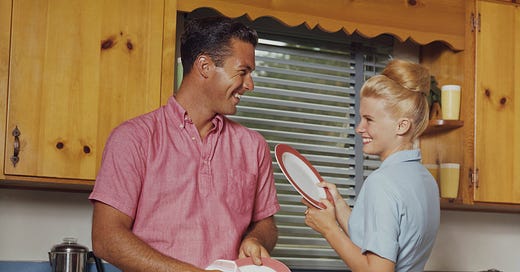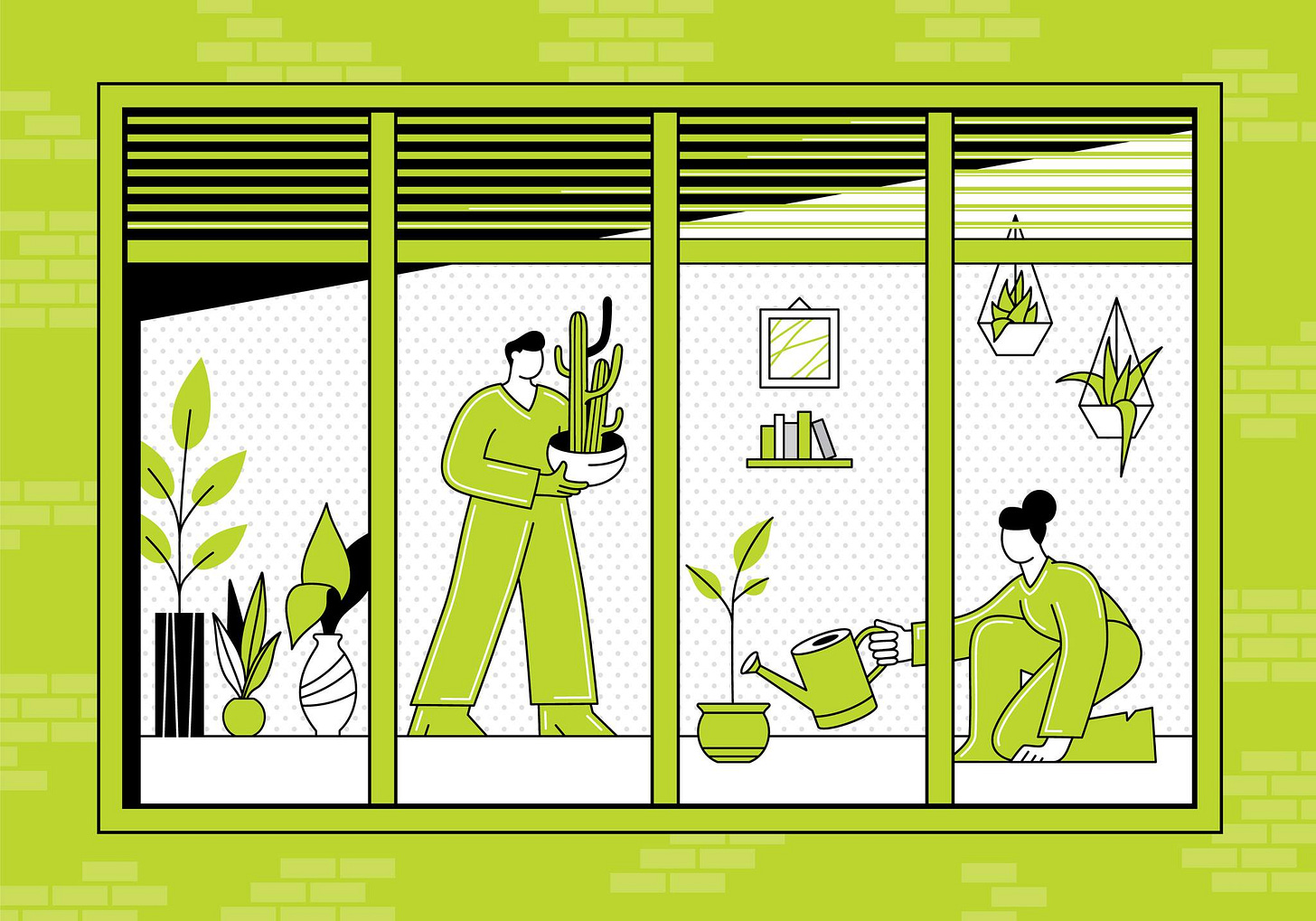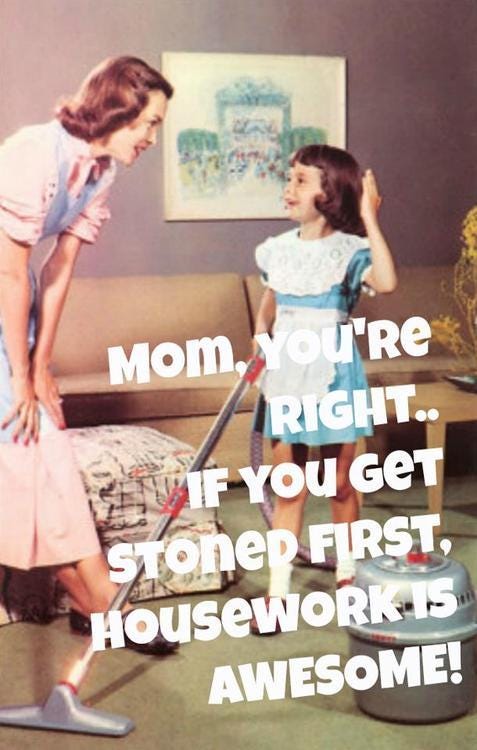You’re a free subscriber to Wait, Really? For the full experience, become a paying subscriber.
My husband says I have a thing about water. Like, that I can’t stop seeing drops of it — specifically, when they are in my house, on my freshly painted white floors, collecting dirt or smearing until I, inevitably, am the one who wipes them up. It’s his job to water the plants — and we have many plants — so it is understandable that there are, sometimes, drips. But I resent that I am the one to clean them — and, perhaps more so, that I seem to be the only one who sees them.
This is a trope among hetero women, that the guys just don’t see the dirt — though, in fact, it's a myth that’s been debunked (though tbh I'd like to talk to that researcher). But I think about this a lot in the context of chores, because there is an endless amount of research on how chores factor into relationship satisfaction (yes, those who share more equally tend to be happier), and how, in mixed-sex relationships, anyway, the home-related tasks disproportionately fall to women (even when both partners work, and even when the woman is the breadwinner in the relationship).
This, of course, became doubly, triply exaggerated in the pandemic, as women who are also parents have continued to bear the brunt of the load.
And yet! There is hope.
This guy is 100% dripping water as he carries that cactus 🙄
In a new paper, published in the journal Sex Roles, researchers found that the way we divide up the most annoying chore-like tasks with a partner or housemate can help make the division of labor feel more balanced. Specifically: There’s a difference between dividing up the chores so that each person does different ones (say, he does the plant watering and I do the bills, which in our case was an effort to reverse the “traditional” chore rotation of most hetero couples) and alternating doing the same tasks on a rotation, so that each person contributes equally to each.
In other words: I should try watering the plants.
It makes sense. You don’t really see the nuances of what it takes to do another’s tasks until you do them yourself, just as I didn’t quite realize how difficult it was not to drip water on the floor until I was the one reaching up high on the bookshelves to do the job (which, yes, I forced myself to do for this article).
Stephanie Coontz, a sociologist who is director of research at the Council on Contemporary Families, which published a briefing on the paper, put it this way: Doing the same tasks can preempt the feeling that the other person’s tasks are "easier." For couples, knowing that a partner is contributing to the same tasks around the home can feel more like teamwork; like a couple is "in it together.”
Coontz, it should be noted, is the nation's preeminent marriage researcher; her book, “Marriage, A History,” was cited in the U.S. Supreme Court decision on gay marriage. And yet it's safe to say this mantra could be applied to any chores-having relationship — whether it be romantic, roommates, friendship or otherwise.
You're welcome!
Portrait of a cockapoo gazing at a pristine white floor.
What else I'm reading:
Can't make it up: Apparently there was a juror who wasn’t supposed to be on the jury in the Johnny Depp trial (Deadline)
Abortion news: Providers are trying to open new clinics as close as possible to states with bans (The 19th)
Strange sisterhood: The secret support system for former aides taking on Trump: The other women (Politico)
From Kim K's bed to God's ears: The old trope of older men dating younger men is out; older women dating younger men is in. (Bustle)
Tripping down the aisle: Couples are offering wedding guests magic mushrooms 🍄🍄 👀 (The Cut)
ICYMI: Here's a video of a bear playing with a soccer ball that I have watched five times now!
From the Archives: Bored Women
Women are bored! That was the general vibe of a The New York Times article from 1955 titled "Housework is the Road to Boredom," which reported that many women were bored in their role of homemaker — and that their boredom was “the primary cause of home disruption.” Characteristics of a bored woman, the article explained, included one who “concentrates on herself,” “escapes from household tasks to recreation, outside work or soap operas.” (Call me a bored woman, I guess!!)
* No, the above illustration did not appear in the Times article.
⏩ Forward this newsletter to a friend or sign up to get it to your inbox.
💬 Have thoughts to share? Email me at supwaitreally@gmail.com. (You can also just reply to this email.)
🙋🏻♀️ Follow me on Instagram or learn more about my writing and books here.







